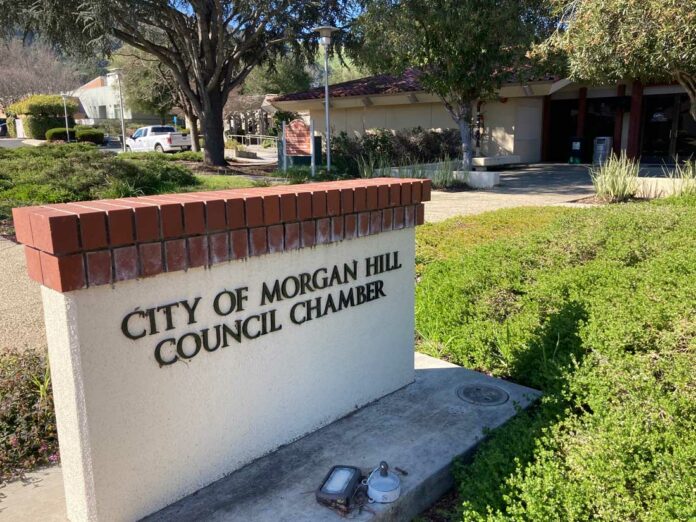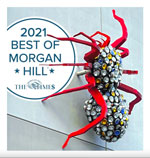Morgan Hill City Council members want to resume remote public comment via Zoom at their meetings, but they hope they can do it in a way that discourages people who might seek to use the forum to spew hateful or offensive views.
On Oct. 4, three people called in to the city council meeting to deliver antisemitic, anti-LGBTQ+ comments during the public comment portion of the meeting for items that are not on the agenda. The people called in under first names only. City Attorney Don Larkin noted that despite the offensiveness of the comments, the speakers still had a constitutional right to state them during the public government forum.
Mayor Mark Turner at the Oct. 4 meeting cut off the third speaker as he began shouting profanities. Council members and city officials resoundingly condemned the hateful comments.
Cities and counties throughout California have experienced similar bombardments of offensive comments delivered remotely at public meetings.
Before the end of October, the city announced that public comment at city council and planning commission meetings is no longer allowed via Zoom, in order to “promote a safe and inclusive space, efficient council meetings and to protect vulnerable communities,” City Clerk Michelle Bigelow said. Members of the public may still comment to the bodies in person at the meetings, or by sending in remarks by email or mail.
The council revisited the possibility of public comment by Zoom during a discussion at the Dec. 6 meeting, and asked staff to come back with details on potential safeguards they could implement to discourage callers whose only interest is delivering intolerant commentary.
Council members said they generally support preserving the convenience of remote public comment for Morgan Hill residents with legitimate concerns or questions, who might not be able to attend meetings due to their busy home or work lives; but they would also like to limit the presence of “bad actors” who have no interest in local issues and aim only to make offensive comments.
An idea that was briefly discussed is the use of another remote service that could replace or complement Zoom, that requires callers to verify their identity by using personal information, Bigelow said.
Other possibilities discussed Dec. 6 include requiring Zoom callers to keep their cameras on and show their faces while speaking; broadcasting remote public comments on a 10-second delay; or only allowing callers who have a disability under the Americans with Disabilities Act, that prohibits them from being physically present at council chambers for the meeting.
At first glance, none of these options seem to be completely fool-proof. Callers could still sign in under a false identity or broadcast a false image on their Zoom cameras, Bigelow said.
“We can’t require them to provide their given name,” Bigelow said.
Bigelow has contacted other city clerks to research what options other cities are taking on Zoom public comment, and she said there doesn’t seem to be a consensus. Many cities, like Morgan Hill, have stopped allowing Zoom comment altogether. Others have moved the public comment portion of the meeting agendas to the end of each session, limiting any potential comments’ exposure to the few members of the public still in attendance.
Larkin added at the Dec. 6 meeting that the city is restricted by federal law in its ability to pick and choose who can speak at a public meeting. The city cannot refuse callers based on the likely content of their remarks, and cannot even restrict public comment to Morgan Hill residents only, he said.
“There is a consensus among city attorneys in our area that as hideous as those comments were, they are protected speech,” Larkin said.
The council unanimously agreed to direct staff to come back with more details on the options for allowing public comment via Zoom, and any potential safeguards or restrictions they can place on such comments. City staff expect to return to the council with such information at the council’s annual goal-setting workshop in early February 2024.
Until then, at least, public comment via Zoom is still not allowed at city council and planning commission meetings.








